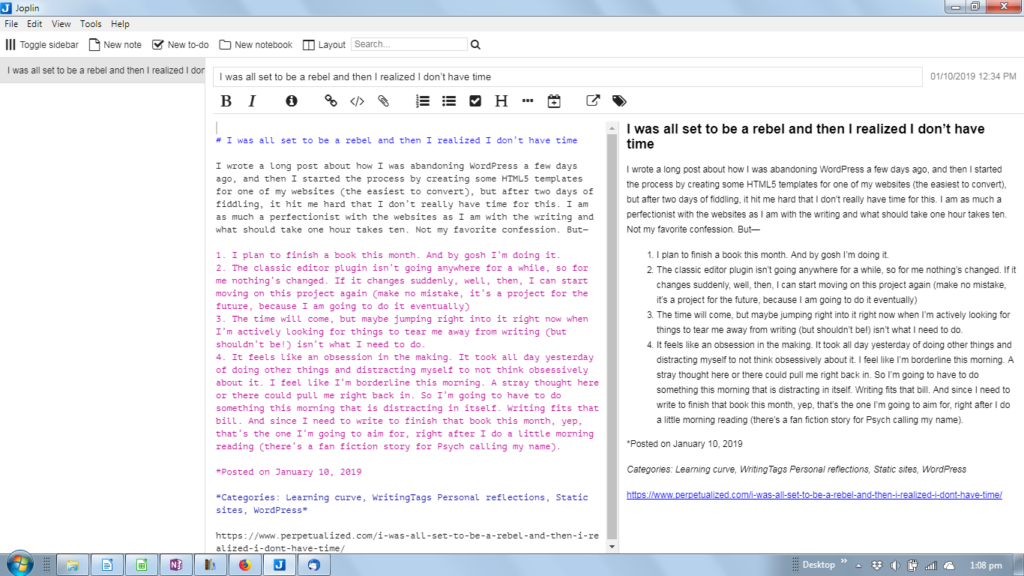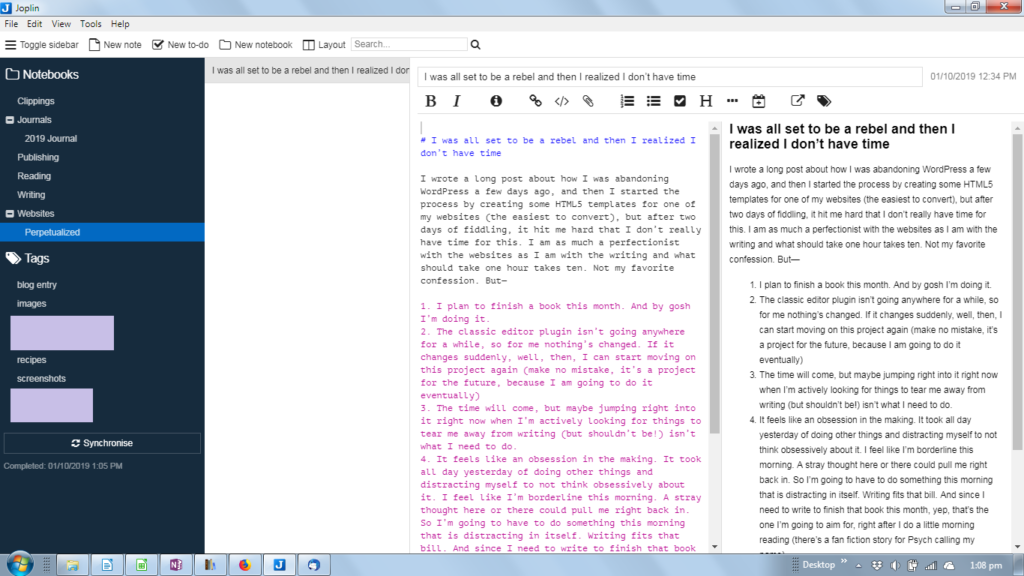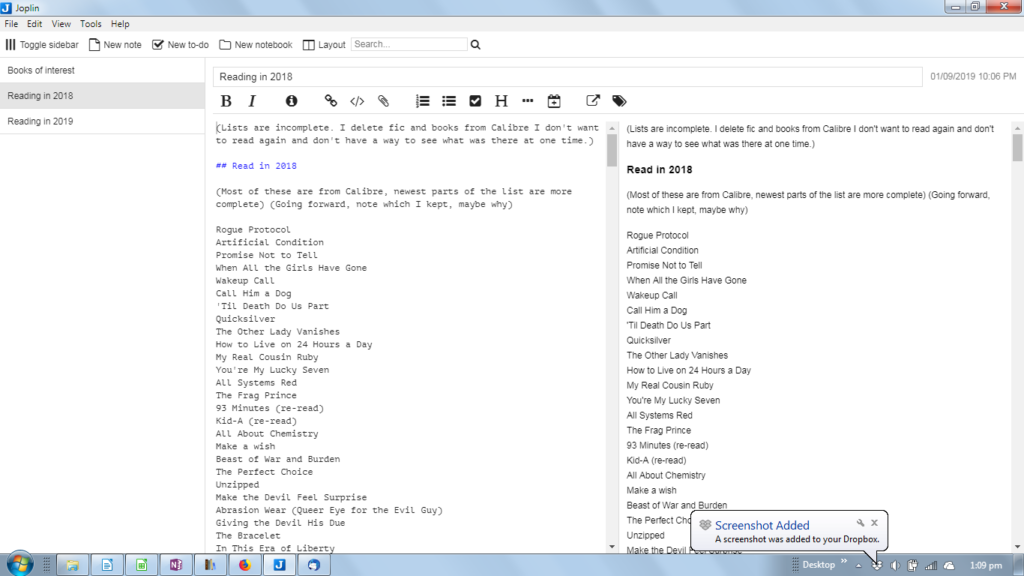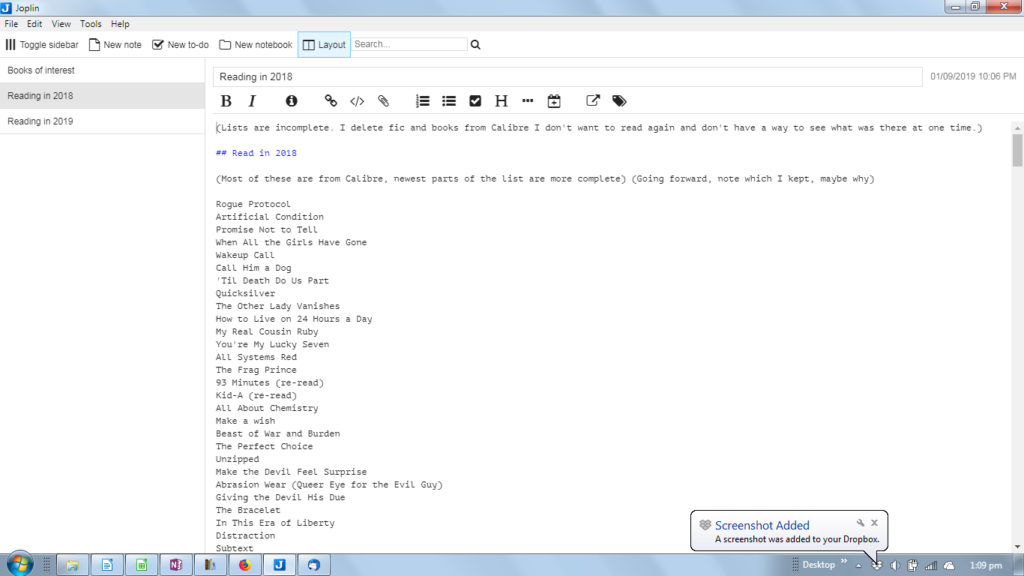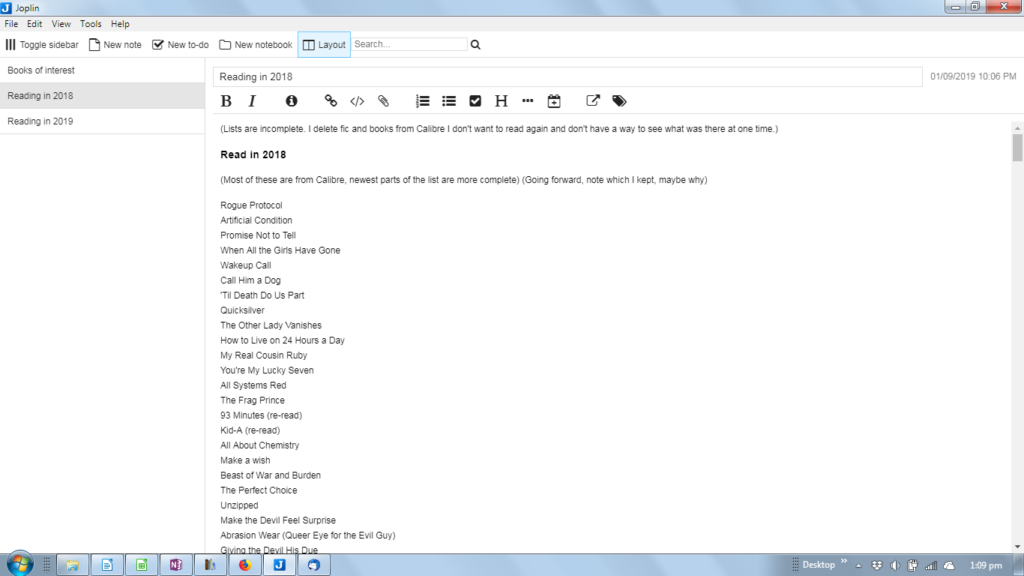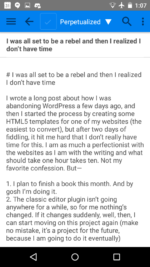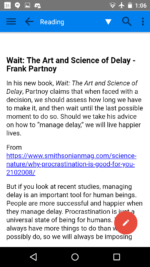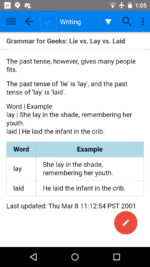I edited my theme for this site and tried out showing only excerpts on the home page, tag and category pages, and other archive pages. (Actually, I think I got rid of the date archive pages with a plug-in.*)
I did all of this to prepare for an eventual shift from WordPress to some other platform, preferably one that is based on generating static HTML files that I can upload to my host. I’d like to be able to go 100% static if I so choose once the conversion is done, because I like making pages by hand and updating links.
Unfortunately, as I’ve said in a previous post, I don’t have time for this now.
It was a surprise to realize that I don’t like the excerpts instead of the full posts—especially because I’m happy with the excerpts-only view on a few other sites I have. I think it has to do with the way this theme is set up and the way the excerpts use up so much space on a page. (See the screenshot.)
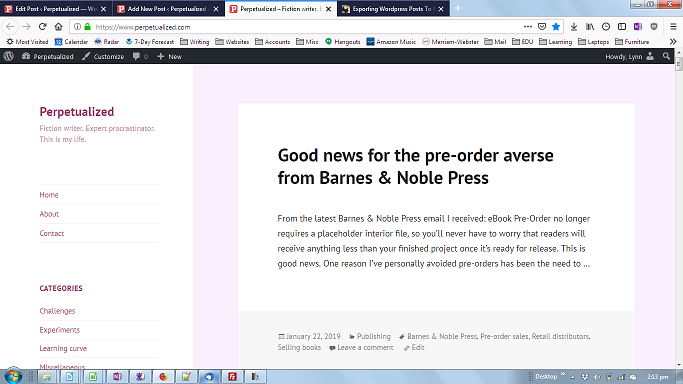
On my other sites, the excerpts occupy a reasonable portion of screen real estate. Here, one short excerpt pretty much takes up the entire screen on my desktop.
What I really want is custom pages with links or text that I link out to my archived content (in place of the tag and category pages), and an archive list of posts by date the way I have now.
Since I can’t have that without too much work or changing themes, I’m just going to go back to full posts.
Easy! :)
*I put the date archive pages back when I realized the links on my calendar widget don’t work without them. I don’t know what that’ll mean for my shift to a static site someday, or if I’m even still planning one. I’ll leave that decision for later.

